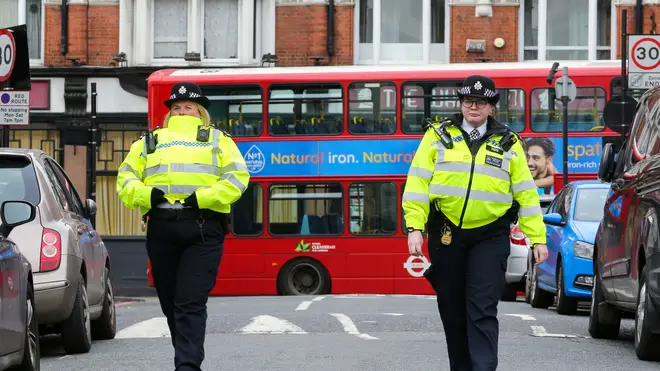
Ian Payne 4am - 7am
18 March 2020, 08:34

Police and Immigration officers will be given new quarantine powers under emergency coronavirus legislation due to be set out by the Government.
Police officers will be given powers to arrest and isolate people in order to protect public health under the new rules, while the Border Force will be able to shut down airports of transport hubs if there are not enough resources to ensure security.
The Bill says it will "strengthen the quarantine powers of police and immigration officers."
The regulations come after 1,950 Brits tested positive for coronavirus while 71 have died.
The sweeping legislation will also see courts and the criminal justice system making greater use of video hearings and could even prevent gatherings.
Read more: Coronavirus - Who should self-isolate and for how long?
The Bill says measures to delay and slow the virus "may mean preventing gatherings of people, postponing electoral events over the course of the year or closing schools, further or high education premises or childcare providers."
Read more: Coronavirus symptoms - What are they and what is the risk of Covid-19 in the UK?
The Emergency Coronavirus Bill - to be tabled in Parliament on Thursday - will give ministers the powers they say they need to respond to the threat of the virus and support the NHS.
The measures, which the Times newspaper report are likely to be passed through the Commons "on the nod", are expected to pass through Parliament within days and with no formal vote.
Read more: Coronavirus and pregnant women - What is the official government advice?
Recently retired NHS and adult social staff will be enabled to return to work without any loss of pension rights.
People who volunteer to help care for patients in the health and social care sector will be given additional employment safeguards enabling them to "pause" their main jobs for up to four weeks while they help out.
Read more: Coronavirus: Beard sanitiser sales spike after NHS urged staff to shave
The plans will also give local authorities the power to direct funeral providers and draft in businesses to supply more vehicles to move bodies, open crematoriums for longer and “streamline the death management process”.
Read more: Coronavirus UK: Do surgical face masks work to avoid virus symptoms?
Health Secretary Matt Hancock said: "The Emergency Coronavirus Bill this week will only be used when it is absolutely necessary and must be timed to maximise their effectiveness, but crucially they give the Government the powers it needs to protect lives."
The Chief Medical Officer for England, Professor Chris Whitty, added: "Our approach to responding to this outbreak has and will remain driven by the scientific and clinical evidence so we do the right thing at the right time.
"The measures included in this Bill will help support our frontline workers, protect the public and delay the peak of the virus to the summer months when the NHS is typically under less pressure."
Read more: What is the Government doing for businesses during the coronavirus pandemic?
Under the proposals, Ministers will be given the power to force schools to stay open or close them. They will also be entitled to reduce teacher ratios, lower school meal standards and relax requirements for those with special needs.